With Liverpool yet to make a significant move in the transfer market, the evidence backing the club’s cautious approach has been outlined by a financial analyst.
The Reds have so far made just one signing on the back of their Premier League title win, that being Kostas Tsimikas, whose £11.75m move from Olympiakos came after Dejan Lovren‘s switch to Zenit St Petersburg.
Bayern Munich midfielder Thiago Alcantara has been persistently linked, but any approach for the Spaniard is said to be contingent on players leaving first, with Gini Wijnaldum the most likely departure.
This stance has disappointed some supporters, particularly given the outlay Chelsea have committed to already, with the signings of Kai Havertz, Timo Werner, Hakim Ziyech, Thiago Silva, Ben Chilwell and Malang Sarr.
Man City have also brought in the likes of Nathan Ake and Ferran Torres, while Man United paid £40 million to secure the signing of Donny van de Beek from Ajax.
In fact, few clubs have been as quiet as Liverpool so far, with their business more in line with the likes of Aston Villa, Leicester, Burnley and West Ham than their expected title rivals.
There is still a month to go until deadline day, of course, but Reds chief executive Billy Hogan has stressed that the club must remain “sustainable,” which is tougher than usual given the landscape of the market.
And in a deep dive on Monday morning, football finance expert Swiss Ramble published a Twitter thread analysing Liverpool’s revenue and highlighted why they are being so cautious:
Many Liverpool fans cannot understand why their club seems unwilling to buy players. Surely they should be awash with cash after winning the Champions League and then the Premier League? This thread looks at where the money has gone and suggests why they are not buying #LFC
— Swiss Ramble (@SwissRamble) September 7, 2020
* Click through to Twitter to unroll the full thread.
It explains how player sales are an “important part of Liverpool’s strategy,” with a pre-tax profit of £207 million over the last three years “entirely due to a £207 million profit on player sales.”
Chelsea (£243m) are the only ‘big six’ club to generate as much from sales during that period, with Arsenal (£139m), Tottenham (£124m), City (£112m) and United (£55m) considerably lower.
Revenue has been boosted significantly of late through broadcasting and commercial income, along with the increase on matchdays due to the expansion of Anfield’s Main Stand, but Liverpool are still behind United and City in this respect.
Swiss Ramble continues that the increase in revenue has allowed the club to reward their key players with higher wages, with wage growth over the last four years at 144 percent, higher than any other ‘big six’ side.
This is horribly technical, but important for #LFC, because, as a result of these adjustments to the profit and loss account, other clubs’ available cash has been boosted much more, e.g. #LFC £293m (amortisation/depreciation £277m, working capital £16m) against #MCFC £544m. pic.twitter.com/CMILDrAkUj
— Swiss Ramble (@SwissRamble) September 7, 2020
Furthermore, transfer fees committed with the signings of the likes of Virgil van Dijk, Alisson, Mohamed Salah, Naby Keita and Fabinho will be paid over a longer period, with Liverpool’s player amortisation growing by 47 percent in the last three years.
Fenway Sports Group have lowered the club’s debt from the Hicks and Gillett era, and have improved recruitment on a major scale, to the point which those brought in are being rewarded with improved deals and, unfortunately, more agents fees are being paid.
But unlike their rivals, Liverpool are so far not reliant on big-money loans, with FSG maintaining their “mantra” of sustainability.
This is particularly apt given the loss of matchday and broadcasting revenue, the latter of which will not be felt immediately but, with the club as ever planning forward, will have an impact in the years to come.
Notwithstanding the “finger in the air” nature of the estimate, I have estimated £96m revenue shortfall over two seasons, assuming games are played behind closed doors until 31st December; or £135m if no fans are allowed back for the entire 2020/21 season. pic.twitter.com/DyGt2ckyM0
— Swiss Ramble (@SwissRamble) September 7, 2020
Swiss Ramble’s analysis is well worth reading in full, as it gives an accurate portrayal of Liverpool’s situation—it may be difficult to swallow as Chelsea and City both spend freely, but is certainly more sensible in the long term.
“Could Liverpool invest more money in the transfer market? Yes, but they would probably have to ‘sell to buy’,” Swiss Ramble concludes.
“Unless they changed their business model, which would require increasing debt (either via an external loan or an injection from the owners).
“This approach, which is effectively the Chelsea or City strategy, has been resisted by FSG (except when financing the Main Stand expansion), who have encouraged a self-sustaining model.
“It’s unlikely they would act differently now, but these are unprecedented times, so who knows?”
One of the key points that should be stressed at this stage is that there remains a long time before the transfer window closes, and though FSG are unlikely to shift their stance, those clamouring for signings should be patient.
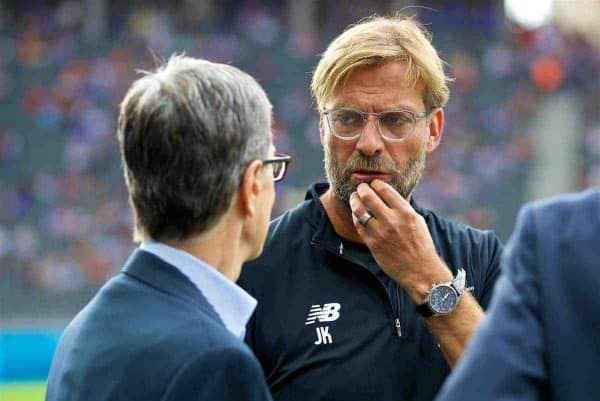





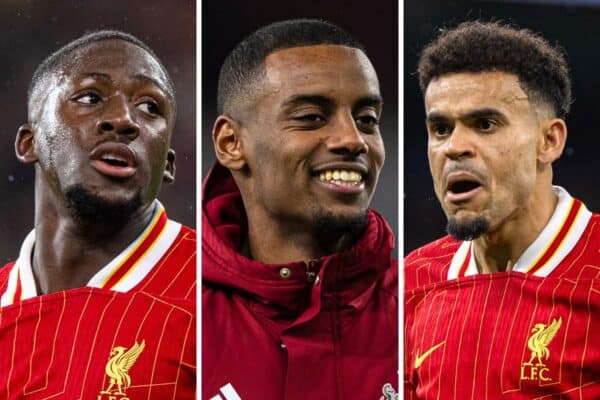
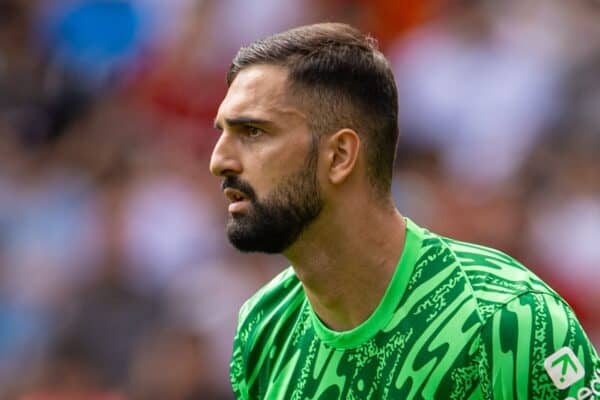



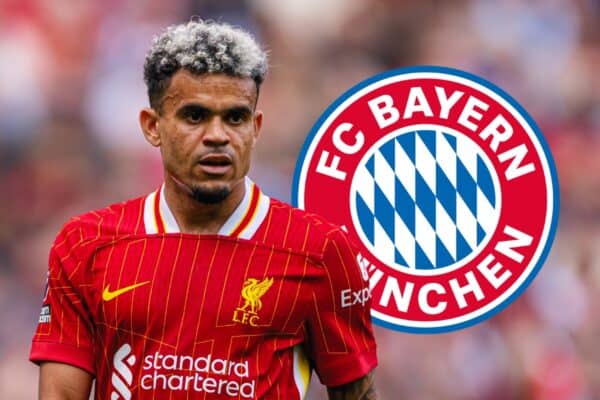



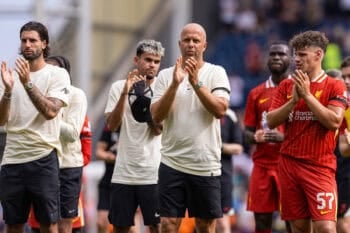


Fan Comments